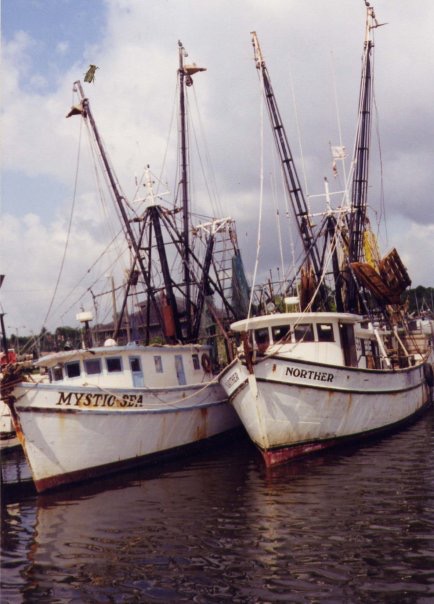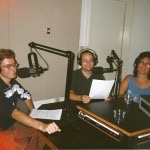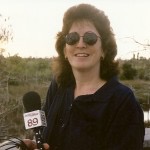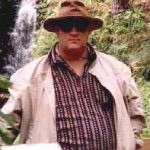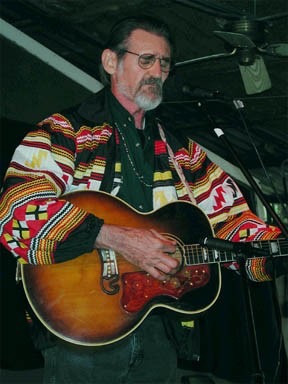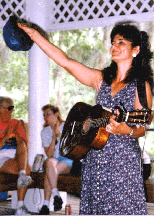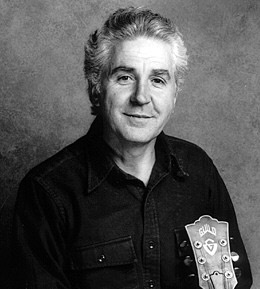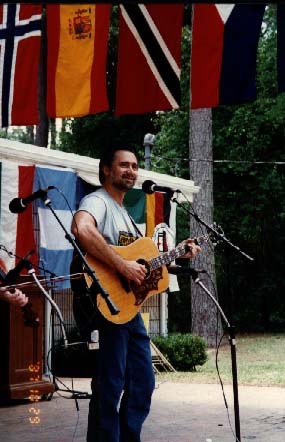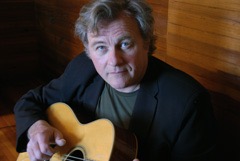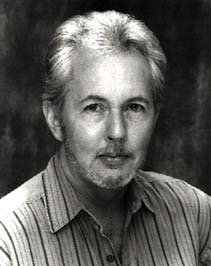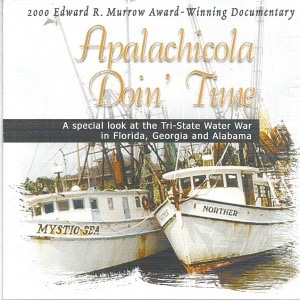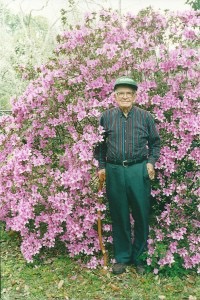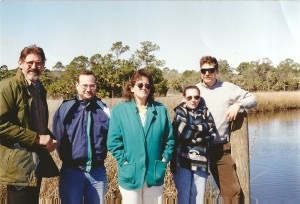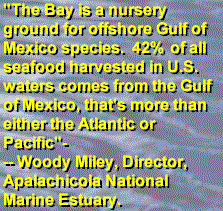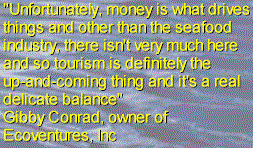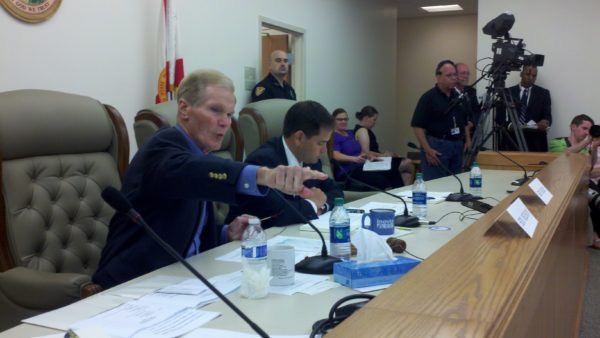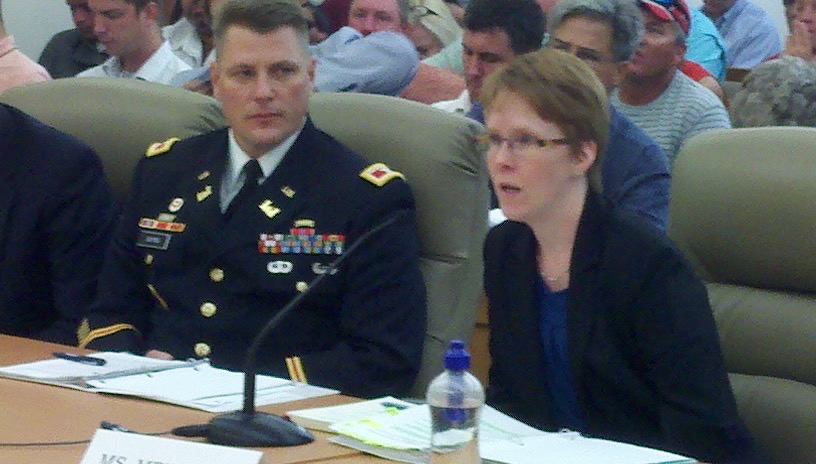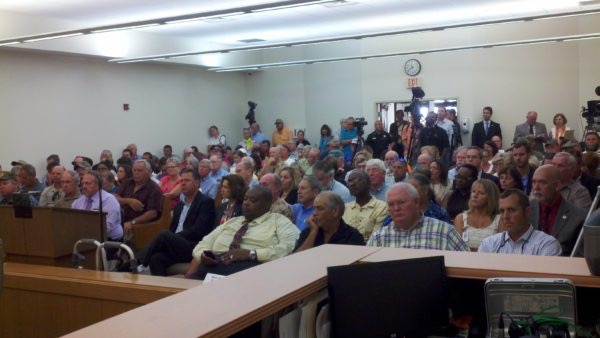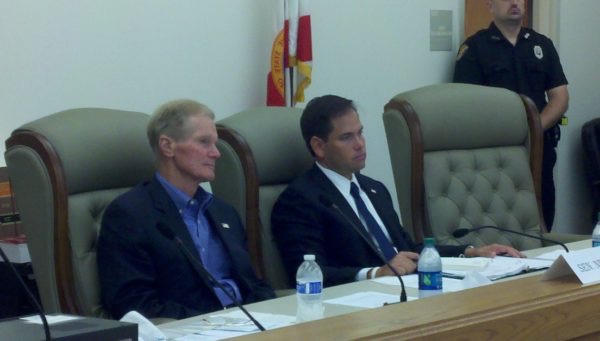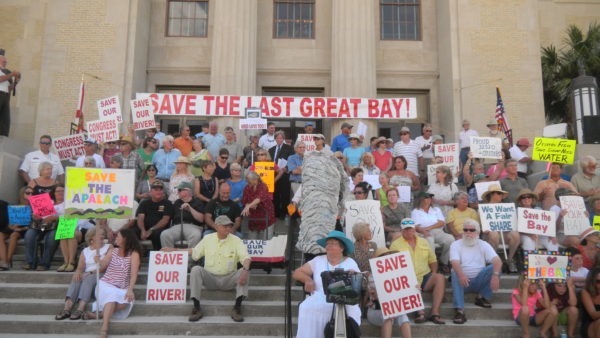Official website of the Murrow Award-Winning Documentary, “Apalachicola Doin’ Time” and various updates
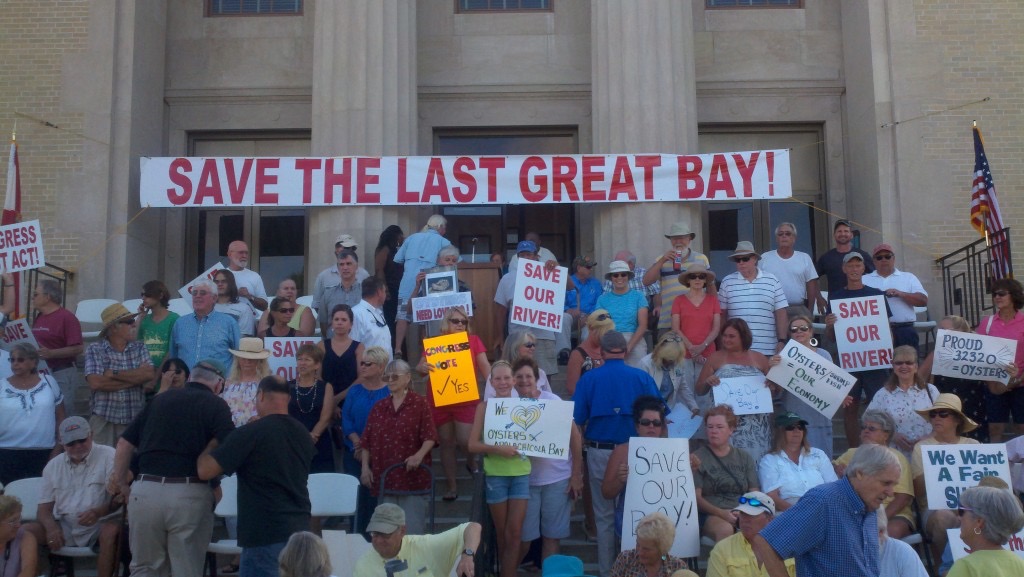
Tuesday, January 9, 2018 UPDATE: The U.S. Supreme Court began hearing arguments on Monday in the 30-year-old water dispute involving Florida, Georgia and Alabama known as the Tri-State Water War. Molly Samuel from public radio station WABE in Atlanta attended the oral arguments. Click to hear her report.
June 1, 2017 UPDATE: Florida asks U.S. Supreme Court to Save Apalachicola River, Oyster Industry:
TALLAHASSEE — Florida is telling the U.S. Supreme Court that it represents the state’s last legal remedy for saving the Apalachicola River and the oysters and people who depend on it. Gov. Rick Scott in 2013 sued Georgia in the Supreme Court, seeking to cap Georgia’s water use upstream on the Chattahoochee and Flint rivers. But a court official recommended in February that the case be dismissed because Florida had not included the Army Corps of Engineers, which operates federal reservoirs on the Chattahoochee River. In a brief filed Wednesday, Florida argues that the court had never found that a state was harmed by upstream water use but then determined it was powerless to do anything about it. If the court dismisses the case, Georgia would be free to continue or increase its water use, Florida said. ….Click here for the full story.
——————————————————————————————————————–
October 2013 UPDATE: Florida Governor Rick Scott and Florida Attorney General Pam Bondi have moved forward with their plans to file a lawsuit in the U.S. Supreme Court over the decades old Tri-State Water War. The lawsuit is primarily aimed at Georgia over that state’s withdrawals of water from the Chattahoochee-Apalachicola-Flint River system—a river system Alabama, Florida and Georgia all share. At the heart of the ongoing debate is the health of Apalachicola Bay and Florida’s seafood industry.
Click here to view highlights of the Senate field hearing held in Apalachicola on the issue in August of 2013. To learn more about how the Apalachicola community is affected by the “water war” listen and view segments below:
2000 Edward R. Murrow Award Winning Documentary

Now available: The full written transcript of the documentary with photos.
| Introduction- to Re-Release of the Documentary | Part One- The Issues |
| Part Two- Florida’s Oyster Capitol | Part Three- Apalachicola’s Waterfront |
| Part Four- Water Quality and the Tri-State Water War | Part Five- Apalachicola’s History |
| Part Six- Tourism on the Rise | Part Seven- Water Quantity and the Tri-State Water War |
| Part Eight- Close and Credits | Part Nine- Epilogue |
The Producers of Apalachicola Doin’ Time- (from left to right) Daniel Beasley, Joshua Azriel, Donna Green-Townsend and Bill Beckett)
Musicians Featured In Apalachicola Doin’ Time (featuring a sample of their music)
Dale Crider – Apalachicola Doin’ Time
Jeanie Fitchen – Changes In The Wind
Steve Gillette – The River
Mike Jurgensen – Music Drifts
and Margaret
Harvey Reid – Circles
Ken Skeens – Old Florida River
Mark Smith – Wisdom of the River
Various locations around Apalachicola, Florida and some of the people interviewed for the documentary.
Musical Murrow Celebration
Just prior to the RTDNA Murrow Award ceremony in Minneapolis, MN, singer songwriter Mark Smith had a celebration at his home which included several of the songwriters who had music utilized in the documentary. In this video Dale Crider sings the song that inspired the documentary.
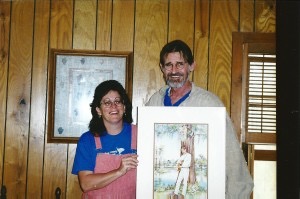
For more than three decades Dale Crider worked as a wildlife biologist for the Florida Game and Freshwater Fish Commission. During that time he also followed his other passion, songwriting. Crider wrote many songs about environmental conditions in Florida. “Apalachicola Doin’ Time” was one such song. It was by chance nearly 30 years after Crider penned the song that Apalachicola resident, George Floyd, happened upon one of Crider’s music tapes and heard his song. On that day the concept for the need to tell the story of the Tri-State Water War was born. Crider is considered to be Florida’s Environmental Troubadour. He has inspired musicians across Florida to write songs about the environment.
Listen to an hour-long special on Across the Prairie on WUFT regarding the Re-release and update of the Apalachicola Doin’ Time Documentary Dale and documentary co-producer Donna Green-Townsend were special guests on the longtime Sunday afternoon program on WUFT, Across the Prairie with host Cathy DeWitt. Click on the audio button below.
Copies of the two-CD set of “Apalachicola Doin’ Time,” including the music companion CD, are available through the non-profit Will McLean Foundation. Will McLean is considered the “Father of Florida Folk.” He’s the first folk artist inducted into the Florida Artists Hall of Fame. It was his mission to save Florida through music.
In 2001 several of the musicians whose songs were used in the documentary were featured at not only the Will McLean Festival (March, 2001) but also the state’s official festival, The Florida Folk Festival (May, 2001). Click on the audio button below to hear the live presentation at the Will McLean Festival. The late Jan Glidewell, longtime columnist with the Tampa Bay Times, introduced Donna Green-Townsend who hosted the special musical event.
One of the key characters of the documentary, Homer Marks, lived to be 102. (Homer died in 2005). Click here to go to a special page dedicated to Homer Marks.
Funding for the “Apalachicola Doin’ Time” documentary was provided by a grant from George Floyd in memory of Jim Floyd and George Kirvin, two of the earliest heralds of the rivers and bays and their value as an undisturbed natural resource.
Apalachicola Documentary Awards
1st Place National RTDNA Edward R. Murrow Award, Best Documentary
1st Place Southeast Regional RTDNA Edward R. Murrow Award, Best Documentary
1st Place Florida Associated Press Broadcasters, Public Affairs category
Silver Reel from the National Federation of Community Broadcasters, documentary category
Finalist, Atlanta Chapter of the Society of Professional Journalists, Green Eye Shade awards (Southeast 11 state Region)
Finalist, Society of Professional Journalists Sunshine State Awards, Public Affairs category
1st Place, BEA Student Interactive Multimedia competition in the Online category
Silver Addy in the Collateral Material – CD Category for the Apalachicola Doin’ Time CD cover, insert and tray card.
Some of the stations that have carried Apalachicola Doin’ Time:
KBAQ Mesa, Arizona
KBOO Portland, Oregon
KERA Dallas, Texas
KJZZ Phoenix, Arizona
Utah Public Radio/KUSU FM Logan, Utah
WABE Atlanta, Georgia
WETS Johnson City, Tennessee
WFSU Tallahassee, Florida
WFSW Panama City, Florida
WJUF-FM Inverness, Florida
WKGC Panama City, Florida
WQCS Asheville, North Carolina
WSLU Canton, New York
WUFT-FM Gainesville, Florida
California Public Radio
Georgia Public Radio
Documentary Summary by- Co-Producer, Donna Green-Townsend Two hundred yards below the Appalachian Trail in Georgia, the waters of the Chattahoochee River begin a 500 mile journey south. The river flows each day through Atlanta, past Western Georgia cities like Columbus and along the state boundary between Georgia and Alabama — past more than a dozen dams and locks on the way to the Gulf of Mexico. At the Florida-Georgia border the Chattahoochee meets up with Georgia’s Flint River and takes on a new name –The Apalachicola. Sixteen billion gallons of water flow down the Apalachicola into the Bay every day making it Florida’s largest waterway and it’s at the heart of a tri-state water war.
This documentary is an audio journey to the community at the end of the drainpipe so to speak — Apalachicola: a Florida seafood community that worries about being at the mercy of its northern water using neighbors. We journey to the city’s famous waterfront, hear about the history of this unique river town and find out how the community’s affected by the rapid development of ecotourism and growth. We also talk with the key negotiators involved in the current water war involving Alabama, Florida and Georgia as the clock ticks down on a deadline to resolve differences over shared river resources.
There’s a lot at stake for all three southern states: rapid growth in Atlanta creates a strong need to secure drinking water for the future. Farmers want to maintain the ability to irrigate their crops, Alabama residents want to maintain peak hydro power and navigational use, and in Florida, at the end of the Apalachicola River, the seafood industry worries about the future of its oysters, scallops, crabs and shrimp.
To read the full written script with photos click here.
Update: U.S. Senators Nelson and Rubio Hold Senate Field Hearing in Apalachicola while Governor Rick Scott says Florida will file a lawsuit seeking to limit the amount of Apalachicola headwaters Georgia can use. (aired August 13, 2013)
Apalachicola’s oyster industry see historic collapse in 2012 from drought and salinity (originally aired April 26, 2013)
The severe drought in 2012 caused an historic collapse of Florida’s oyster industry. During the past year a variety of state agencies have been working for the Florida Sea Grant Program to try and understand all the causes for the fishery disaster. The cooperative effort is working toward designing a plan to help restore and manage the industry in the future. WUFT’s Donna Green-Townsend talked with the Director of the Florida Sea Grant College Program, Karl Havens, who is heading up the University of Florida’s Oyster Recovery Team, about the findings outlined in the group’s special report this week.
Links to Environmental Data
United States Geological Service — Water Resources of Georgia: The overall website for the USGS water resources program in Georgia. Links to a variety of pollution data, answers to common questions and USGS publications.
Upper Chattahoochee River Keeper: The website of the non-profit organization that keeps tabs on everything that deals with the Chattahoochee, including a section on tri-state water issues. Background information on the river, legal issues, and information about joining the group.
Georgia Department of Natural Resources: An extensive section on Georgia’s plan to deal with water issues among the three states
Alabama Department of Economic and Community Affairs: The specific details of Alabama’s water plans for the ACF river basin and the Alabama-Coosa-Tallapoosa River basin.
Apalachicola Chamber of Commerce: The online home to the Apalachicola area. Find out about the historic nature of “Florida’s Forgotten Coast.”
Tupelo Honey: The largest and densest stands of Tupelo trees grow in the swamps of the lower Apalachicola and Chipola Rivers. Nowhere are Tupelos so dense that honey can be made from and certified pure Tupelo.
Florida Department of Environmental Protection: The site provides the latest information on proposed environmental legislation, appointments, and programs.
Apalachicola National Estuarine Research Reserve: The Apalachicola Reserve includes two barrier islands and a portion of a third. The Reserve also includes the lower 52 miles of the Apalachicola River and its associated floodplain, small portions of adjoining uplands, and the Apalachicola Bay system. The overall high water quality of the Apalachicola estuary, with the combined effects of other factors, provide the ideal living conditions for estuarine biota and have resulted in the creation of a highly productive estuarine system. The myriad of habitats found within the Reserve support a wide range of plant and animal species, many of which are threatened or endangered.
Apalachicola River and Bay Ecosystem Plan: A 183-page plan to balance human needs with wildlife needs. Developed by Florida State University for the Florida Department of Environmental Protection and the Army Corp of Engineers.
Corps of Engineers: The various recreation sites on the Chattahoochee, Flint and Apalachicola river system, including various lakes, locks, dams, and campgrounds.
Read the original 1999 interviews with key players in the tri-state water war:
Sally Bethea — Executive Director of Upper Chattahoochee River Keeper
Matt Kales — Program Director at Upper Chattahoochee River Keeper
Steve Leitman — Environmental Scientist, NW FL Water Management District
Woody Miley — Director, Apalachicola National Marine Estuary
Lindsey Thomas — Federal Commissioner of the ACT – ACF River Basin Commission

